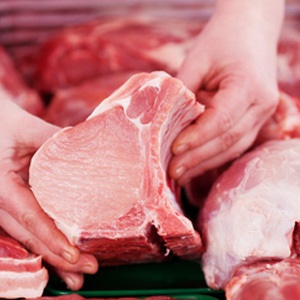(image: Shutterstock)
We live in a world of ‘pre-packed’, ‘frozen’, ‘easy to cook’ and ‘ready-made’ without taking the time to consider the full life-cycle of our food. Knowing where your food comes from is a basic principle to a healthy lifestyle.
Caroline McCann, owner of Braeside Meat Market in Johannesburg believes in not only knowing your butcher, but knowing where your meat comes from too. She shares some insight into the meat market and what consumers need to consider the next time they purchase a piece of meat.
Misconceptions about the meat industry
Many people believe that the best meat comes from grain fed and large companies – where you can order boxes with the meat already cut up. However, I soon discovered this was not correct after a trip to the UK where butchers I admired could tell me about the provenance of their meat, which is why I then decided to come back to South Africa and ask questions I should have asked my meat supplier before.
Questions to always ask your butcher
What breed of animal am I buying?
How old was it at culling?
What did it eat and did it roam freely?
How humane was the slaughter?
Why is it important to know the life cycle of food before you purchase?
When an animal has been raised on a diet natural to it, roamed freely as it would in nature and has been culled humanely without undue stress, it yields the best quality and tasting meat. One common practice is for butchers to add ice to mince to make it look extra lean and to bulk it up and as a result the meat lacks moisture in cooking.
Some of the dangers in the industry
More and more butchers are injecting water (which contains phosphate) to their meat to make it extra tender. The biggest problem with this is that many consumers are becoming allergic to phosphates which can present itself as food poisoning – and yet no one is declaring this on menus or packages of red meat.
Nowadays, there are unfortunately many hidden and sometimes hazardous issues when it comes to the food that is available to us. So it is important to start choosing well-made products over convenience products and make it a point to know what you’re putting on your plate and into your body.
By Caroline McCann of Braeside Meat Market.

